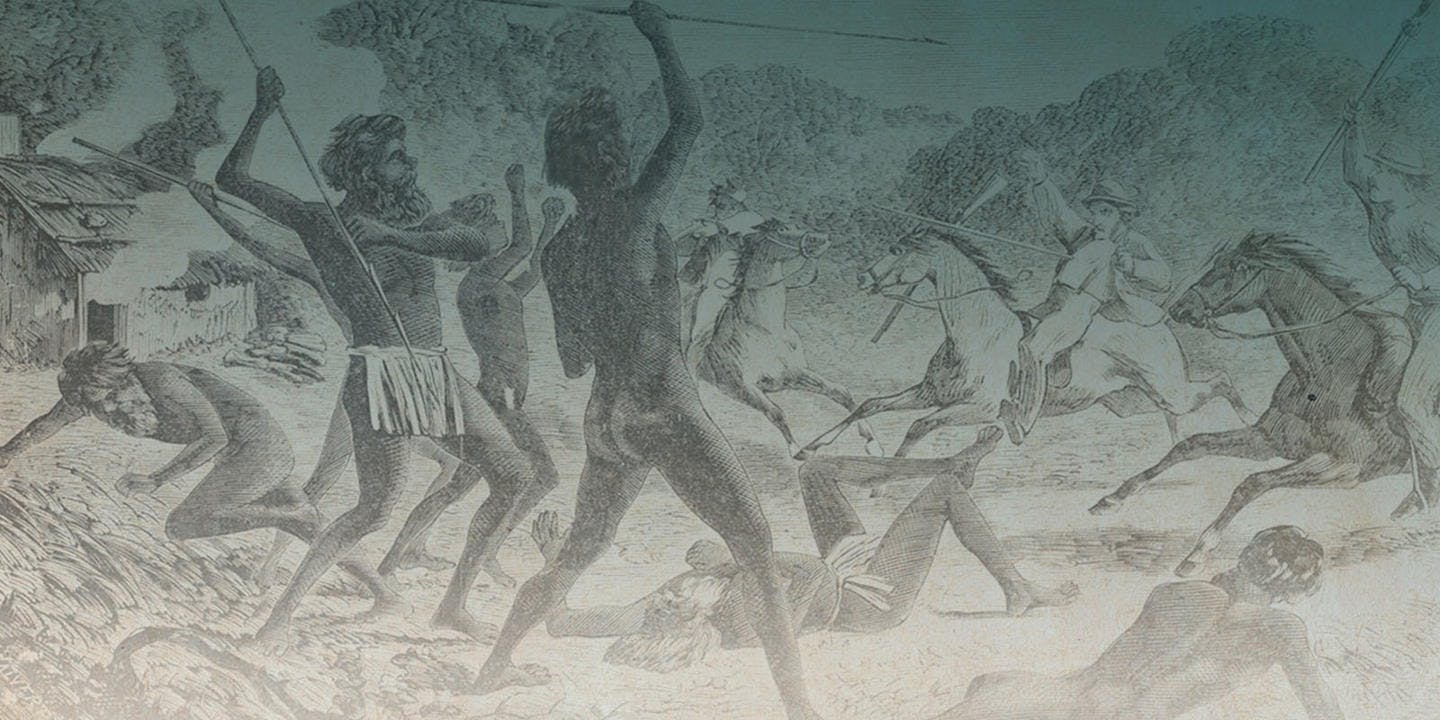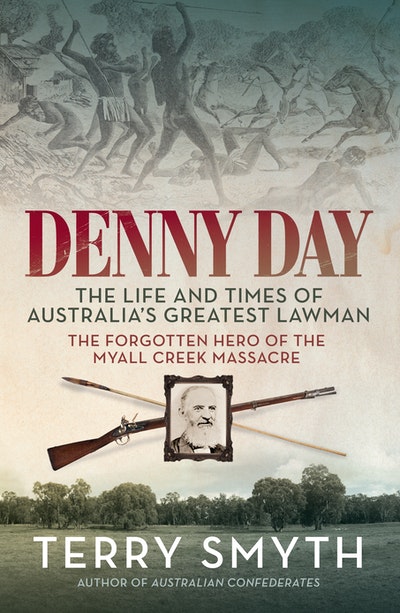Terry Smyth fields questions on research, writing and Australia’s greatest lawman.
An award-winning journalist, playwright, scriptwriter and songwriter, Terry Smyth has a longstanding interest in colonial Australian history. And through his books – Australian Confederates and Denny Day: The Life and Times of Australia's Greatest Lawman – he gives voices to long forgotten figures of Australia’s past. Here we ask Smyth some questions about the re-telling of the extraordinary events of Denny Day’s life.
Why the fascination with colonial history?
Because it’s simply that – fascinating. In my school days, Australian colonial history, as taught, was a mere sidebar to British history. It was sanitised, mundane, devoid of all colour and contention. Finding it to be quite the opposite is an ongoing voyage of discovery.
How did you come across the story of Denny Day?
Some years ago, my brother Dan, who had moved to the Hunter Valley to open a law practice there, heard the story of Denny Day. It was local lore, unknown or little known beyond the valley. As we stood by Day’s neglected grave, Dan suggested that the lawman’s story deserved to be widely known. He was right.
Day’s story has a compelling narrative, and a cast of colourful characters, heroes and villains. How did you come to the decision to write this book?
Telling Day’s story has been somewhat of an obsession since that day in the old graveyard, so when I suggested the idea to my publisher and the response was positive and enthusiastic, I was delighted, on the one hand, and on the other felt a heavy responsibility to do it justice.
Can you give an idea of the level of research involved, and to what lengths you went to ensure you got the story straight?
As with Australian Confederates, I believe it’s necessary to paint a narrative as part of a wide canvas. After all, nothing in history happens in isolation – each event affects or is affected by the big picture. To that end, putting flesh on the bones of this story was a considerable challenge. The further back you go – and we’re talking about the early 19th century here – the more difficult it can be to find an original source, so you need to dig deep to sift fact from folklore. Researching Day’s life and times involved more than trawling through archives and fusty old tomes. It included oral history gleaned from settler descendants willing to share family stories, riding through the valleys and plains of the narrative on a Waler, and standing at the Myall Creek Massacre site, reflecting on the day when evil stalked those pretty hills.
What did you find most surprising about Day’s story?
The politics of hate that fuelled the frontier wars. The depth of animosity towards anyone even mildly supporting equal justice for black and white. While these days racism is often disguised as pragmatism, back then it was unabashed, virulent and institutionalised.
'Sydney sits cowering in its cove, its face turned seaward, lying back and thinking of England'; 'The ring of the white man’s axe was the sound of profanity'. You use metaphor to great effect in Denny Day. What challenges did you face in balancing historical information with flourishes of movement and colour?
You must always be careful not to slap colour on the canvas with too heavy a brush. Sometimes there is barely enough hard evidence for a pencil sketch. Luckily, though, in early Victorian times people were not afraid to let their feelings show when putting pen to paper. Diaries, newspaper articles, even bureaucratic reports were often laced with romantic fancies and spites, from the flowery to the libellous, and that makes empathy easy.
Why is Day’s story so important in Australian history?
His story, in a nutshell, is one man’s unwavering pursuit of justice against all odds. As such, it will continue to resonate while Australia has to be dragged kicking and screaming to confront its past, and the wounds of the frontier wars are yet to heal.













